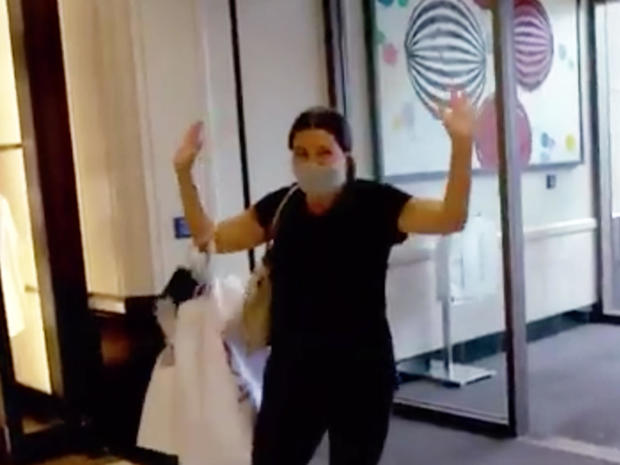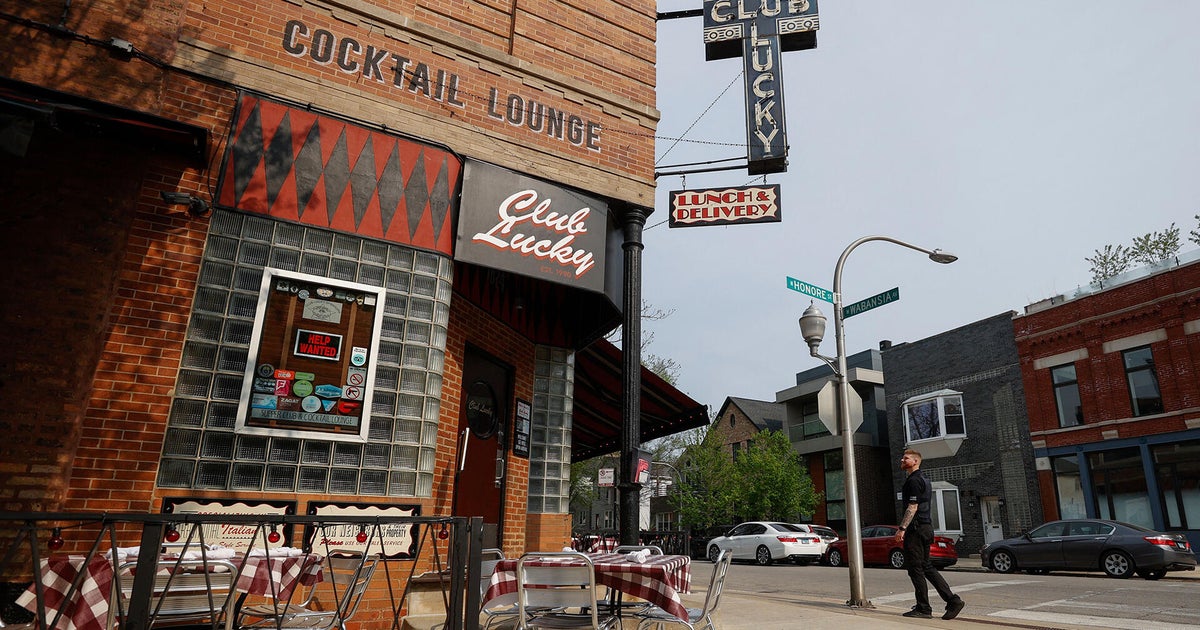The new normal in retail: How stores are accommodating customers in the era of coronavirus
This week in our series on "The New Normal," we're looking at how coronavirus affects the retail industry and the way we shop.
The re-opening of a Dallas Nordstrom store was a hopeful reminder of the way things used to be, for both customers and staff. "Welcome! We missed you! Welcome back!" said cheering employees.
"We've been sitting in front of a Zoom screen for the last two months," said one customer, Jennifer. "And I just want to get some new clothes, and feel like it's spring and summer and there's some normalcy."
Retailers nationwide are trying to figure out what that normalcy looks like for shoppers in the era of coronavirus. In San Francisco, that means only curbside pickup for now, but at a Wisconsin toy store, Winkie's, masks are optional for customers.
Earlier this month Kohls opened dozens of stores in several states. They've closed fitting rooms, and designated special hours for at-risk shoppers.
Nordstrom is welcoming shoppers back at dozens of its stores. At one Dallas location, employees now wear masks and gloves. PPE was available at the entrance for customers, and there was a steady stream of cleaning in every department. They are also limiting the number of entrance and exits points in the building, to help in counting the number of customers.
At check out, a shield separates customers from the sales clerk. And, of course, more hand sanitizer.
Correspondent Mireya Villareal asked the president of Nordstrom Stores, Jamie Nordstrom, "Everybody wearing masks, a lot of people wearing gloves, a lot of sanitizer around. Some people would say, like, this doesn't feel like real shopping, but is this the unfortunate new norm that we're dealing with right now?"
"I think that's hard to say," he replied. "We're gonna be doing everything we possibly can."
Nordstrom said the new normal is a moving target: "We might find that some of those things may not be necessary over the long-term."
Nordstrom opened up in 1901 as a shoe store, so it was important to management to reopen its shoe department safely. So, here's how it works: let's say you try on a pair of shoes and you don't like them? That item goes into quarantine for 72 hours before anybody else can try it on.
Villareal asked, "Were there any items that you guys decided, 'We'll probably need to put this on hold,' or, 'We're not selling this'?"
"We started with talking to a lot of retailers in Asia, who, you know, are a few months ahead of us in this," Nordstrom replied. "There hasn't been any specific merchandise that's been problematic. I think mostly it's around services. In our beauty department, we do a lot of makeovers where you're literally touching the customer. We can't do that right now. We do a lot of tailoring."
Nordstrom said it is planning to re-open 62 more stores later this week.
Sales in retail (which supports more than one-quarter of the U.S. workforce) fell by record numbers last month. The clothing sector led the way, with a more than 78 percent drop in sales from March, after stores shut down across the country.
JC Penney became the latest national retailer to file for bankruptcy protection as Americans turn increasingly to shopping online.
Even though Nordstrom has a strong online presence, the company told "CBS This Morning" that 70 percent of its business comes from its stores.
The retail industry brought in nearly $4 trillion last year, employing roughly 52 million Americans. The National Retail Federation estimates seven million retail jobs could be lost due to the pandemic.
"As the retail industry goes, so goes the economy," said the federation's president and CEO Matt Shay. "And we need those businesses, large and small, to support those communities and to deliver products and services, but also to create employment opportunities for those millions of Americans who will be impacted if we don't."




